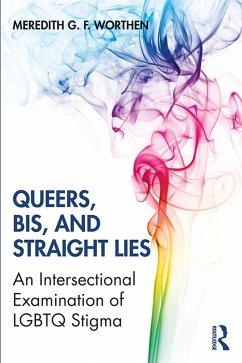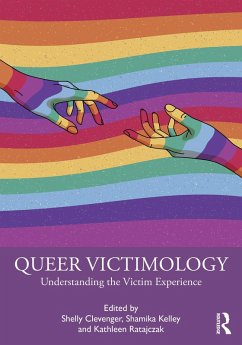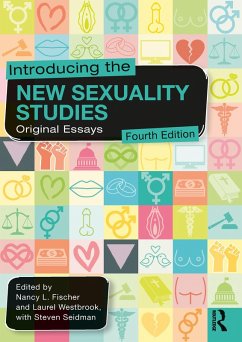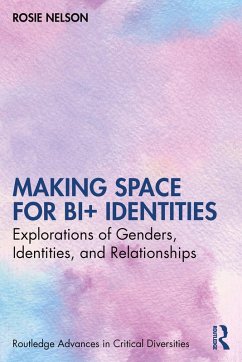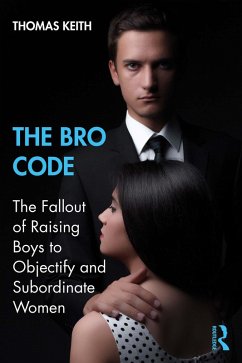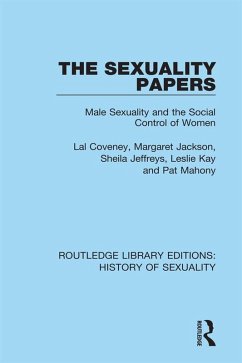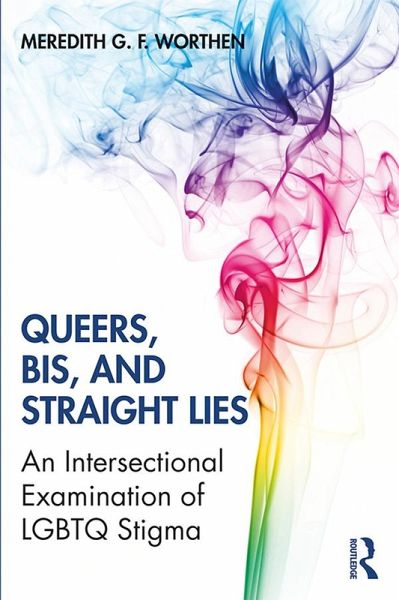
Queers, Bis, and Straight Lies (eBook, ePUB)
An Intersectional Examination of LGBTQ Stigma
Versandkostenfrei!
Sofort per Download lieferbar
46,95 €
inkl. MwSt.
Weitere Ausgaben:

PAYBACK Punkte
23 °P sammeln!
Though there have been great advances for LGBTQ people in recent years, stigma, intolerance, and prejudice remain. Queers, Bis, and Straight Lies: An Intersectional Examination of LGBTQ Stigma offers an in-depth exploration of LGBTQ negativity through its ground-breaking use of Norm-Centered Stigma Theory (NCST), the first ever theory about stigma that is both testable and well-positioned in existing stigma scholarship.Based on research with more than 3,000 respondents, hetero-cis-normativity and intersectionality are highlighted as fundamental in understanding separate but interconnected disc...
Though there have been great advances for LGBTQ people in recent years, stigma, intolerance, and prejudice remain. Queers, Bis, and Straight Lies: An Intersectional Examination of LGBTQ Stigma offers an in-depth exploration of LGBTQ negativity through its ground-breaking use of Norm-Centered Stigma Theory (NCST), the first ever theory about stigma that is both testable and well-positioned in existing stigma scholarship.
Based on research with more than 3,000 respondents, hetero-cis-normativity and intersectionality are highlighted as fundamental in understanding separate but interconnected discussions about LGBTQ individuals' experiences with discrimination, harassment, and violence. With chapters dedicated to lesbian women, gay men, bisexual women, bisexual men, trans women, trans men, non-binary/genderqueer people, queer women, and queer men, Queers, Bis, and Straight Lies brings together empirically-driven findings that work toward dismantling "straight lies" in an innovative and impactful manner.
Through its novel and critical approach, Queers, Bis, and Straight Lies is the ideal resource for those who want to learn about LGBTQ stigma more broadly and for those who seek a nuanced, theory-driven, and intersectional examination of how LGBTQ prejudices and prejudicial experiences differ by gender identity, sexual identity, race/ethnicity, and class.
Based on research with more than 3,000 respondents, hetero-cis-normativity and intersectionality are highlighted as fundamental in understanding separate but interconnected discussions about LGBTQ individuals' experiences with discrimination, harassment, and violence. With chapters dedicated to lesbian women, gay men, bisexual women, bisexual men, trans women, trans men, non-binary/genderqueer people, queer women, and queer men, Queers, Bis, and Straight Lies brings together empirically-driven findings that work toward dismantling "straight lies" in an innovative and impactful manner.
Through its novel and critical approach, Queers, Bis, and Straight Lies is the ideal resource for those who want to learn about LGBTQ stigma more broadly and for those who seek a nuanced, theory-driven, and intersectional examination of how LGBTQ prejudices and prejudicial experiences differ by gender identity, sexual identity, race/ethnicity, and class.
Dieser Download kann aus rechtlichen Gründen nur mit Rechnungsadresse in A, B, BG, CY, CZ, D, DK, EW, E, FIN, F, GR, HR, H, IRL, I, LT, L, LR, M, NL, PL, P, R, S, SLO, SK ausgeliefert werden.




